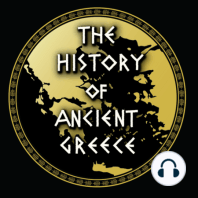48 min listen
062 Agricultural Festivals
ratings:
Length:
60 minutes
Released:
Nov 20, 2017
Format:
Podcast episode
Description
In this episode, we discuss the Attic calendar year with a focus on the agricultural festivals; starting in the fall at the time of sowing we work our way around the year, month-by-month; particular focus is given to the Thesmophoria and the Eleusinian Mysteries but a dozen or so other festivals are described Show Notes: http://www.thehistoryofancientgreece.com/2017/11/062-agricultural-festivals.html Intro by Travis Dow of Podcastnik Website: http://www.podcastnik.com Twitter: https://twitter.com/podcastnik The History of Ancient Greece is powered by CLNS Media Network and Today's episode is brought to you by Great Courses Plus. Enjoy unlimited access to all of their courses FREE for One Month – but you need to sign up through THOAG's special URL @ https://www.thegreatcoursesplus.com/Greece
Released:
Nov 20, 2017
Format:
Podcast episode
Titles in the series (100)
006 Mycenaean Greece: In this episode, we discuss the archaeological evidence of the Mycenaean Greeks of the late Bronze Age (ca. 1650-1250 BC); particularly from the major palace centers in the Argolid at Mycenae and Tiryns, Athens in Attica, the island of Salamis,... by The History of Ancient Greece
